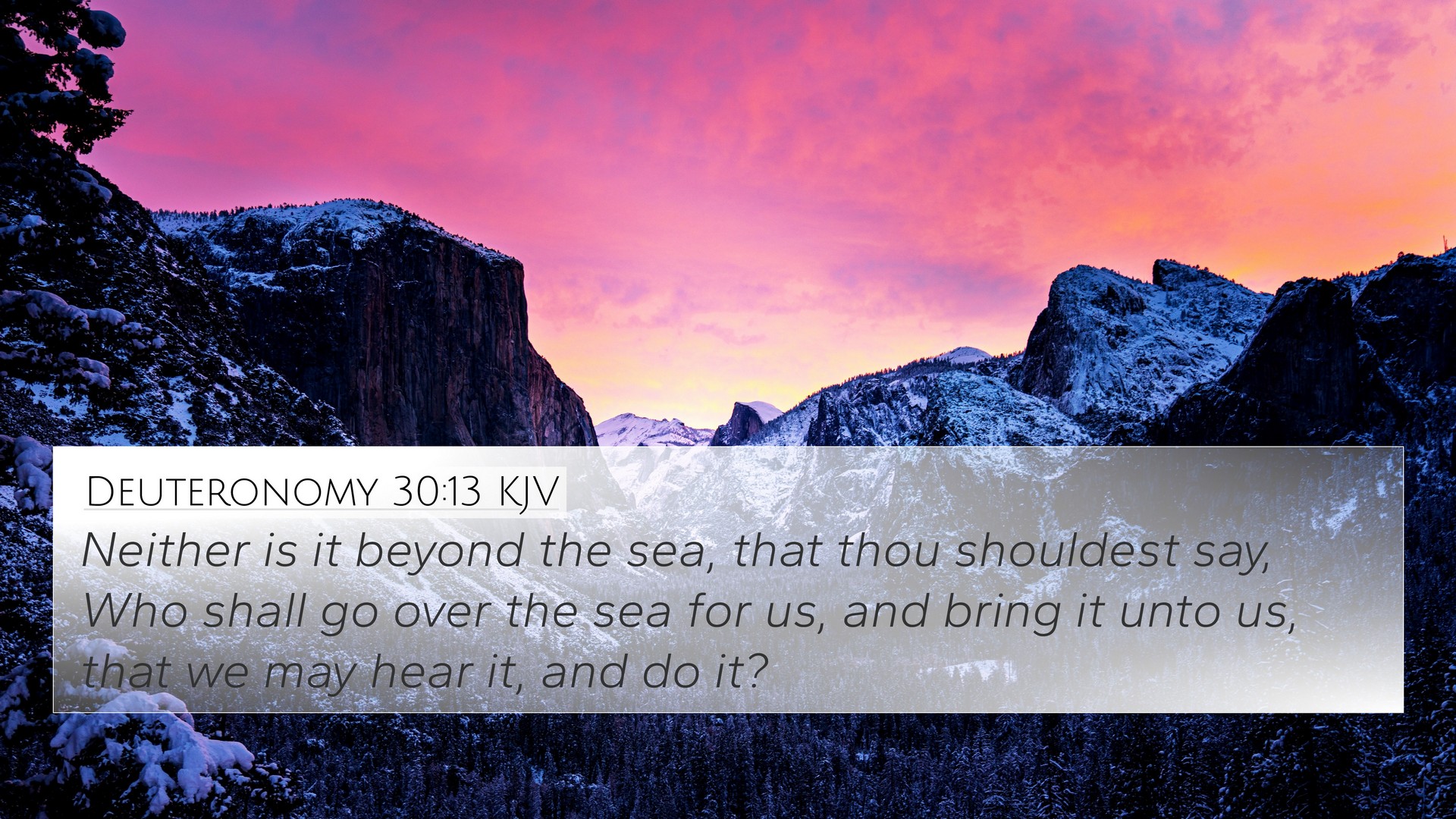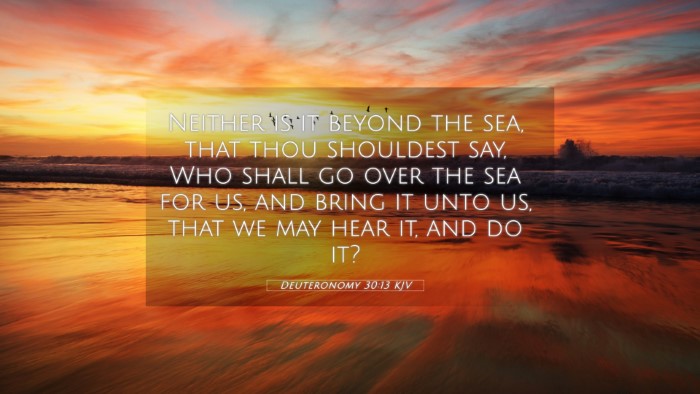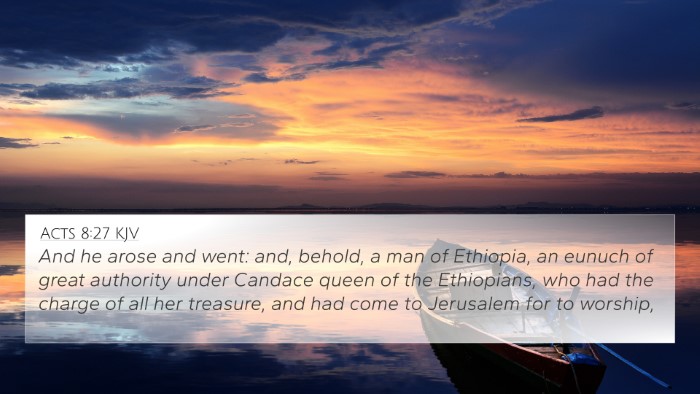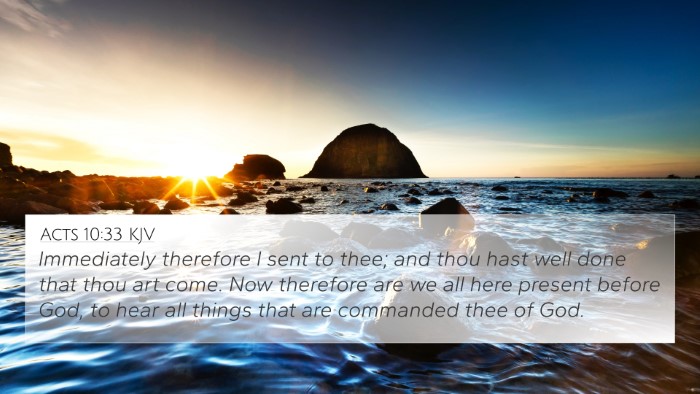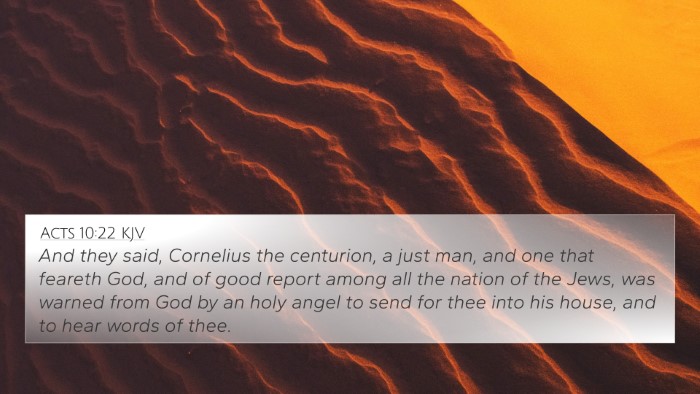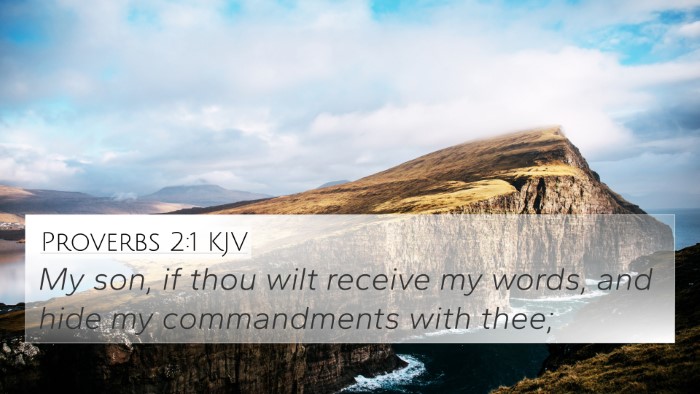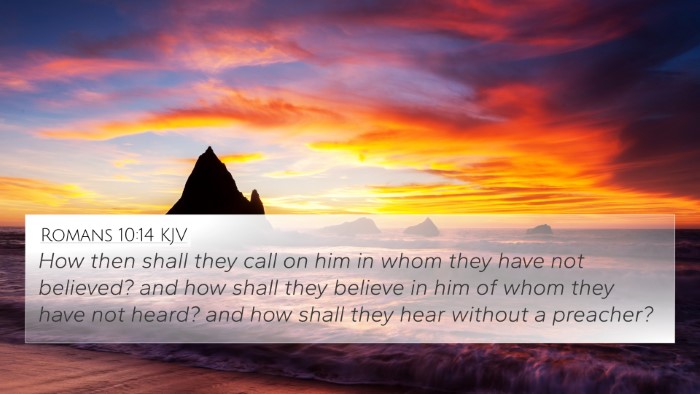Understanding Deuteronomy 30:13
Verse: "Neither is it beyond the sea, that you should say, Who shall go over the sea for us, and bring it unto us, that we may hear it, and do it?" (Deuteronomy 30:13)
Contextual Overview
In Deuteronomy 30, Moses addresses the Israelites as they prepare to enter the Promised Land. He emphasizes the importance of obedience to God's commandments and the accessibility of God's word.
Insights from Commentaries
Combining insights from Matthew Henry, Albert Barnes, and Adam Clarke, we can distill several key interpretations of this verse:
- Moses' Assurance: Moses reassures the Israelites that God's commandments are not inaccessible or burdensome. They do not require extraordinary efforts to grasp or fulfill.
- The Immediacy of God's Word: God’s instructions are readily available to the people, suggesting that they are within reach and comprehensible. This emphasizes the theme of divine accessibility.
- Contrast With Misunderstanding: The verse counters any notion that they need to seek wisdom from distant lands or extraordinary means, reflecting their tendency to overcomplicate faith and obedience.
- Encouragement for Action: Moses calls the Israelites to take personal responsibility for hearing and acting upon the word of God.
Thematic Connections
This verse connects with several broader biblical themes, including:
- Accessibility of God’s Word
- Direct communication between God and His people
- Encouragement to follow God’s commands without delay or excuse
Cross-References to Consider
- Romans 10:8: "But what does it say? The word is near you, in your mouth and in your heart." This reflects the notion that God’s word is close at hand.
- Psalm 119:10-11: "With my whole heart have I sought you: Oh let me not wander from your commandments. Your word have I hid in my heart, that I might not sin against you." This highlights the internalization of God’s commandments.
- James 1:22: "But be ye doers of the word, and not hearers only, deceiving your own selves." This emphasizes acting upon God’s Word.
- Colossians 3:16: "Let the word of Christ dwell in you richly..." This speaks to the importance of having the word of God reside in the believer.
- Deuteronomy 30:14: "But the word is very near you, in your mouth and in your heart, that you may do it." This verse directly follows and reiterates the message of accessibility.
- Jeremiah 23:29: "Is not my word like fire, says the Lord, and like a hammer that breaks the rock in pieces?" This reinforces the power of God’s Word.
- Hebrews 4:12: "For the word of God is quick, and powerful, and sharper than any two-edged sword..." This verse reveals the potency and clarity of God's message.
Conclusion
Deuteronomy 30:13 serves to illuminate the nature of God's commands as accessible and meant for immediate action. Through biblical cross-referencing, we can see that this theme of accessibility and personal responsibility is consistently supported throughout Scripture. The verse encourages believers to treasure God’s word in their hearts and act upon it without hesitation.
